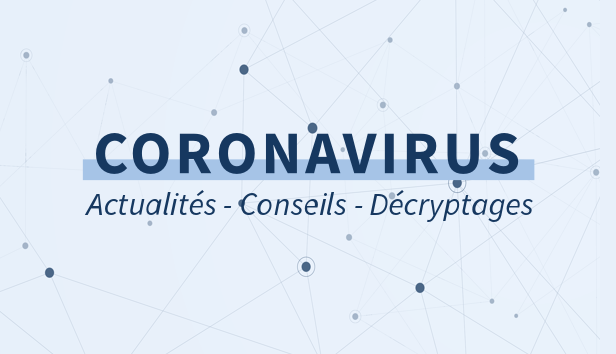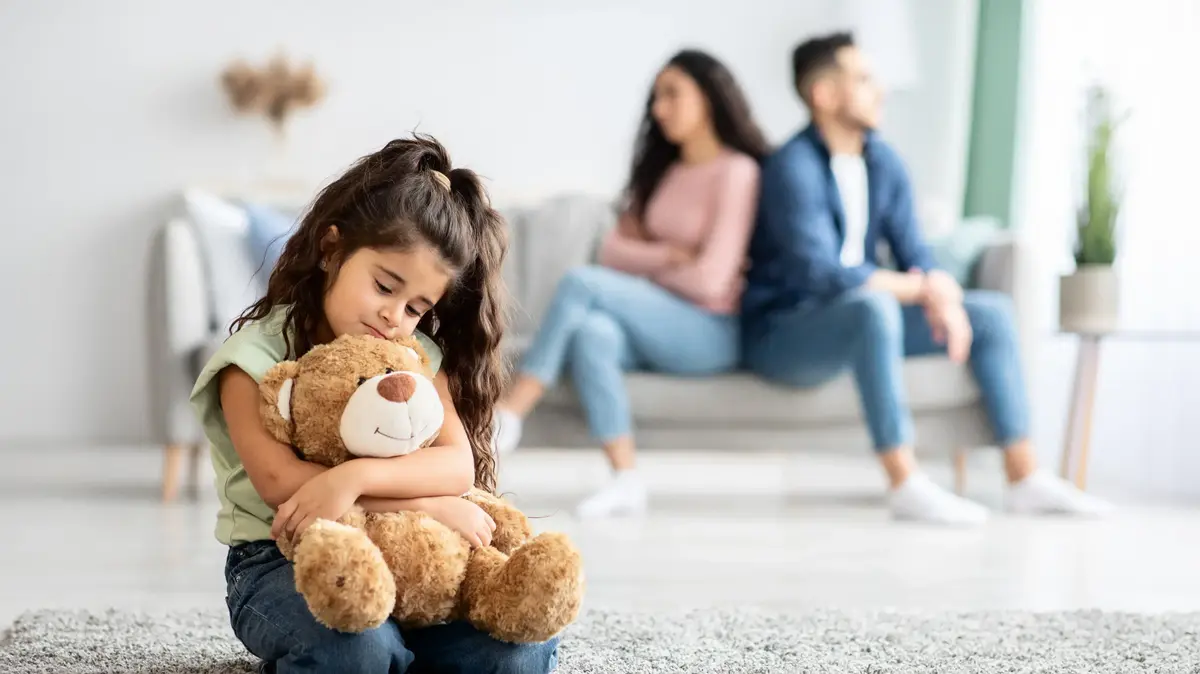Hello,
The rumor roared, the ax fell last night.
France is
confined
again
from Friday and for at least four weeks.
Faced with the increase in Covid-19 contaminations and the
risk of hospital saturation
, Emmanuel Macron is reinstating the device last spring with, however, reductions for
school
and certain economic activities.
It is, in reality, the
whole of
Europe
which is re-fining itself with the entry into force of new restrictive measures almost everywhere.
A massive blow to
businesses, traders and the world of culture
.
Just like for citizens.
The mood in this month of November will probably not be applause, chants and other games from our balconies.
Finally,
Le Figaro invites
you to find all the interventions of the
Big Bang Health
devoted this year to the coronavirus.
Good reading,
Camille Lestienne, journalist at
Le Figaro
.
1. Six months later, France re-enacts confinement
Emmanuel Macron announced it on Wednesday evening in a televised address.
France is confined again.
Le Figaro
France locked a second time.
Faced with the numbers, nothing helped.
While the number of contaminations explodes (36,437 in 24 hours) and that already more than half of the current capacity of resuscitation services is occupied by patients of Covid-19, the President of the Republic has resolved to confine again the French.
At least until December 1st.
In a speech last night, Emmanuel Macron announced the return of the device put in place last March with its traffic restrictions, the closure of non-essential businesses and the obligation of a certificate to leave the home.
However, reductions are planned.
Economic activity is not completely at a standstill since counters, factories and construction continue to operate.
Nurseries, schools and high schools also remain open with a reinforced health protocol.
But universities and grandes écoles will go 100% distancing.
Elderly people in nursing homes will be able to receive visitors.
For culture, on the other hand, no exception, theaters, cinemas, museums will have to close their doors, thus further deepening the collapse of the sector.
The measures will be detailed by the Prime Minister this Thursday at 6.30 p.m.
Read also: From deconfinement to deconfiture: how we got there
Containment to save the hospital in need of caregivers
.
The second wave, admittedly slower, could nevertheless be more deadly with a saturation of resuscitation beds from November, analyzes the Sciences du
Figaro service
.
Especially since the lack of nursing staff, crying out last spring, does not seem to have been resolved, on the contrary.
"We are approaching this second wave with less staff than in the first
," laments a doctor.
Although the General Directorate of Health (DGS) reaffirms the
Figaro
objective of 15,000 hospital recruitments, it is for the moment unable to provide data on any recent recruitments.
Added to this is the absenteeism of caregivers, exhausted, sick or contact cases.
"
Our challenge is not so much to obtain additional posts as to fill those which exist
", confided Frédéric Valletoux, the president of the Hospital Federation of France.
Hope all the same.
Despite the difficulties and the resignation of many nurses, the crisis is giving rise to vocations among young people, many of whom want to enroll in training institutes.
Read also: Covid-19: the debate on the contagiousness of children is not settled
A second wave that is sweeping over Europe.
It is "
in the process of invading
the whole of Europe
", warns the President of the Scientific Council, Jean-François Delfraissy, "
including very good students like Germany, Austria or Switzerland
".
If France is the sad champion of contamination with 35,000 daily cases over the last seven days, it is followed closely by the United Kingdom with an average of 20,000 daily cases, then Spain and Italy, around 15,000 cases each.
Ireland paved the way for re-containment on October 21, with a lighter protocol compared to spring and the opening of schools.
Restrictions rather well accepted according to the testimonies collected by
Le Figaro
.
In Italy, on the other hand, the measures decreed by the authorities are hotly contested in the streets.
A semi-confinement centered on leisure activities which may not be enough.
In Spain, a curfew has been imposed nationally from 11 p.m. to 6 a.m. with the possibility for regions to set it up at the margins and take additional restrictive measures.
Belgium, for its part, is closing its museums, cinema and performance halls in the face of the explosion of contagions.
Read also: In Europe, more or less strict screw turns against the virus
To read also: Charles Michel: "Europe must now avoid the health drama"
2. Businesses and traders stunned
The streets emptied of its inhabitants will once again become the daily life of the French.
A shock difficult to overcome for businesses and businesses.
BENOIT TESSIER / REUTERS
A sledgehammer for the economy.
From the start of the week, while the reconfinement hypothesis was strengthening, a wind of panic rose among business leaders.
"
If we completely reconfigure as in March, we are heading for a collapse of the French economy, we risk not recovering,
" warned Geoffroy Roux de Bézieux, the president of Medef.
On Wednesday, the stock markets unscrewed, anticipating the toughening of anti-covid measures around the world.
From last night, traders, artisans and restaurateurs denounced the new measures.
“We are stunned.
This is the last stage before an economic death
"
,
responded the spokesman of the National Association of cafes, bars, restaurants and independent hotels (GNI)
.
In addition, large-scale distribution is already getting ready for battle.
While supermarket shelves are once again being robbed, supermarkets claim to have constituted as a precaution enough stocks of the most popular products, such as pasta.
Christiane Lambert, the president of the FNSEA ensures "
that there is no fear
of food shortage
if the French do not overstock
".
One criterion will however be crucial: that of absenteeism, in stores, warehouses and factories.
Read also: Reconfinement: a new shock for public finances already severely degraded
Telework outside the big cities
.
Some did not wait for the president's announcements to go green.
As of Wednesday evening, more than 400 km of traffic jams were recorded in Ile-de-France while many Parisians testified to the Figaro of their desire to leave the capital during this new confinement.
“
In a 20 square meter room with my boyfriend, I am only waiting for one thing: to flee!
», Confides a young woman.
Others fear that the bosses will not play along and prevent them from going to the countryside.
However, companies have prepared to reinstate teleworking.
This time, it will be up to managers to manage the emotional difficulties of employees as well as their own.
To address this new confinement,
Madame Figaro
, consulted psychologists and gives you their good advice.
Read also: Covid-19: visualize the situation in your neighborhood
3. Relive the Big Bang Santé du
Figaro
Find the best moments of the Big Bang Health in replay.
Le Figaro
Many of you followed the Big Bang Health, which we announced to you last week.
By unveiling his new tracking application as part of this event, Cédric O, Secretary of State for Digital Transition and Electronic Communications, clarified that
“there was no personal data in TousAntiCovid”.
Hence the "need to educate and explain the benefit-risk ratio of these applications
", on which Laurence Devillers, researcher at LIMSI-CNRS insisted, in order to gain the trust of citizens, during the morning devoted to roles of new technologies in the health crisis.
“
Today, with 30% of Covid patients, the system is holding.
But if we go up to 60% of non-Covid patients, it will become fair to take care of them,
”warned Lamine Gharbi, president of the Federation of Private Hospitalization, intervened last Friday, during the morning dedicated to health policies.
Valérie Pécresse, president of the Ile-de-France regional council, for her part demanded that the regions can chair the regional health agencies, which should be "
the place where the public hospital, private clinics and liberal medicine ”.
"
Europe in health has not been up to the task,"
also pointed out Didier Pittet, the Swiss infectious disease specialist, chairman of the commission to assess the coronavirus crisis, who has just submitted his report to mid - course.
While the flu vaccination campaign is subject to a shortage of vaccines, Philippe Juvin, head of the emergency department at the Georges Pompidou hospital and former MEP, recalled that
"only 23% of nursing assistants in nursing homes were vaccinated.
The coronavirus was the opportunity to change that.
It hasn't been done.
"And, according to him,"
once we have a vaccine against Covid-19, we will be in the same situation as for the flu
".
Find the replay in our file dedicated to the Big Bang Santé du
Figaro
.
4. Reflexes to keep
A few simple actions can limit the spread of the virus.
Here they are :
Wash your hands every hour or use hydroalcoholic gel
Cough or sneeze into the crease of your elbow
Use disposable tissues
Avoid kissing or shaking hands
Wear a mask in public spaces when respect for physical distances is not guaranteed.
Covid-19 is transmitted through droplets (respiratory secretions), by close contact with an infected person, especially when the latter coughs or sneezes.
But it can also be transmitted through the air.
The virus also remains viable for a few hours on different surfaces.
The disease manifests itself in several symptoms.
In 9 out of 10 cases, this results in a fever below 39 ° C.
According to the World Health Organization, this fever is most often accompanied by fatigue, signs of shortness of breath and a dry cough.
Often a loss of smell and taste.
5. What to do in case of symptoms?
The most important thing is to get tested.
According to the recommendations of the Ministry of Health, you should, in case of symptoms, stay at home and contact your doctor who will order a test.
While waiting for the result, you must isolate yourself, wear a mask and prepare a list of people you could have infected.
If the test is positive
, the Primary Health Insurance Fund will contact people likely to be infected.
You must then remain isolated for at least 8 days, taking care not to infect your loved ones.
Watch your health.
In case of fever, take paracetamol.
If necessary, schedule a follow-up remote consultation with your doctor.
If you feel that you are having difficulty breathing, call 15.
If the test is negative
, contact your doctor and follow his instructions.
See you next week.




/cloudfront-eu-central-1.images.arcpublishing.com/prisa/73ZHZSDVHRBJTPHOJJXPCVYFA4.jpg)




